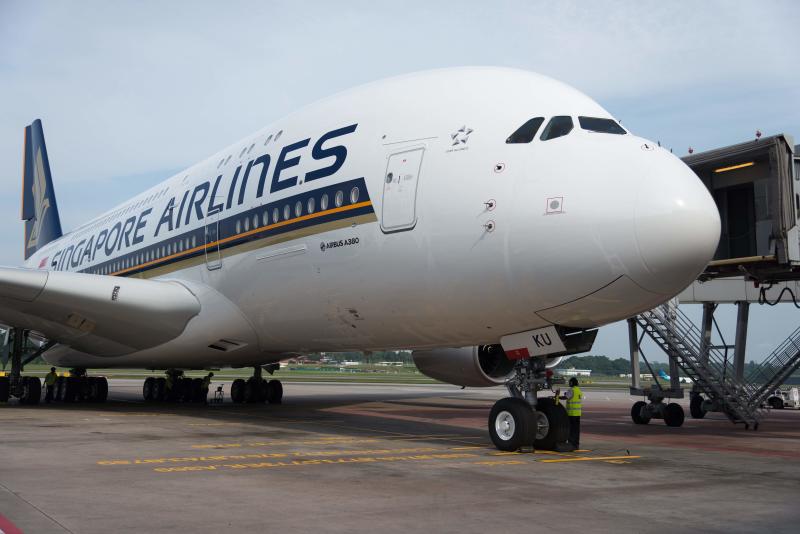Singapore Airlines' flip-flop risks hurting its premium brand
Sign up now: Get ST's newsletters delivered to your inbox

Karamjit Kaur
Follow topic:
SINGAPORE - In a span of 24 hours, Singapore Airlines (SIA) did a flip-flop over its decision to impose a credit card fee on bookings made by some travellers departing from Singapore.
It will not charge the fee, it said on Thursday (Jan 4), one day after announcing that from Jan 20, those who buy its cheapest discounted tickets - Economy Lite - would have to pay a fee of 1.3 per cent of the total fare amount, capped at $50.
SIA already imposes the fee on routes departing from Australia, Belgium, the Netherlands, New Zealand and the United Kingdom.
No reason was given for the unexpected U-turn, except that it was taken after a review.
In the 15 years that I have been writing about SIA, I have never seen the airline move so swiftly.
In fact, in a commentary just two weeks ago, I said SIA is not known for making impulsive decisions.
So one wonders what prompted the unusual move.
Observers suggest two possible scenarios.
One, SIA did not expect the flak it received from customers and netizens, many of whom accused the airline of turning into a low-cost carrier that charges for this, that and every little thing.
The criticisms, coming just a few weeks after another change had upset some travellers, could have played a part in the quick reversal of decision.
SIA had announced some weeks ago that from Jan 20, new fare structures and rules will kick in. The changes cover advance seat selection, frequent flyer programme mileage accrual rates, baggage allowance, and change and refund flexibility rules.
One result is that SIA customers who buy tickets with the steepest discounts have to pay more: for example, they have to pay a US$5 charge per sector to select a seat before the flight is ready for online check-in.
The other reason could be that the airline's initial decision to impose a credit card fee selectively created some unhappiness among banks and credit card companies.
They could have felt the move would discourage customers from using their credit cards to pay for their flights.
To be fair, SIA is not the only full-service carrier that imposes a credit charge charge for ticket bookings. Others, such as Qantas, British Airways, Air France/KLM and Emirates, do it too.
When credit card transactions are made, there is a processing fee - typically about 1 to 3 per cent of the total purchase price - that has to be paid.
Merchants can either choose to absorb the charge, which some do, or pass it on to the consumer.
The latter option, however, is increasingly being frowned on, as Singapore continues to push for a cashless society. It would make no sense for a fee to be charged for going cashless.
In the latest case, SIA - which has been absorbing the credit card fee so far - clearly feels it can no longer afford to do so, with tough competition forcing fares down and eating into its profits.
But even if a case can be made for passing on the fee to consumers, SIA could have handled the situation better.
For one, its initial decision to charge only travellers who pay the lowest fares is hard to justify. Even if they do not contribute significantly to overall revenues, many who fly SIA are loyal customers who may one day upgrade to premium economy or even business class if treated well.
To aggravate the situation, these same travellers were targeted earlier, with new fees for seat selections that were previously free, when the airline announced its plans for a new fare structure and rules.
If a credit card fee must be imposed, it should apply to all customers. This is the practice among many other carriers with similar charges.
Making the sudden U-turn - though good for consumers - was a bad move.
It suggests SIA was not confident it could justify its decision or worse, it did not know its customers well. If it did, it should have foreseen the reaction it received.
Perhaps, it would have been better for SIA to stick to its guns, reviewed the situation in a few weeks or months' time, and then remove the charge.
As the airline moves through its transformation phase - a three-year project to cut costs and do things in a more efficient and cost-effective way - customers can expect more changes.
SIA, however, needs to be careful not to take things too far and risk diluting its premium brand, which its top brass has insisted many times will not be affected no matter the changes.
One can only hope that the current fiasco has taught it not to take its customers - even those who pay the lowest fares - for granted.

